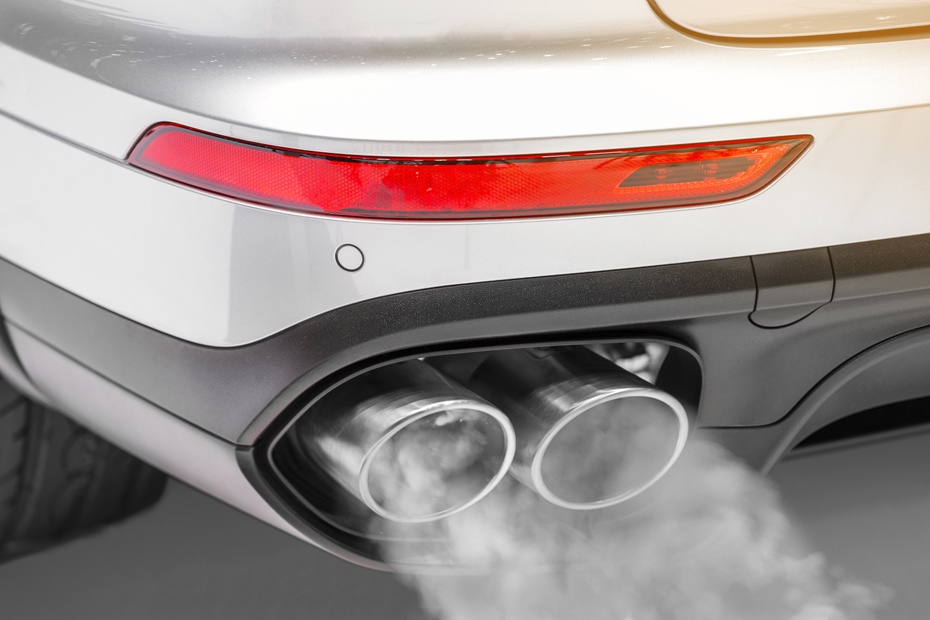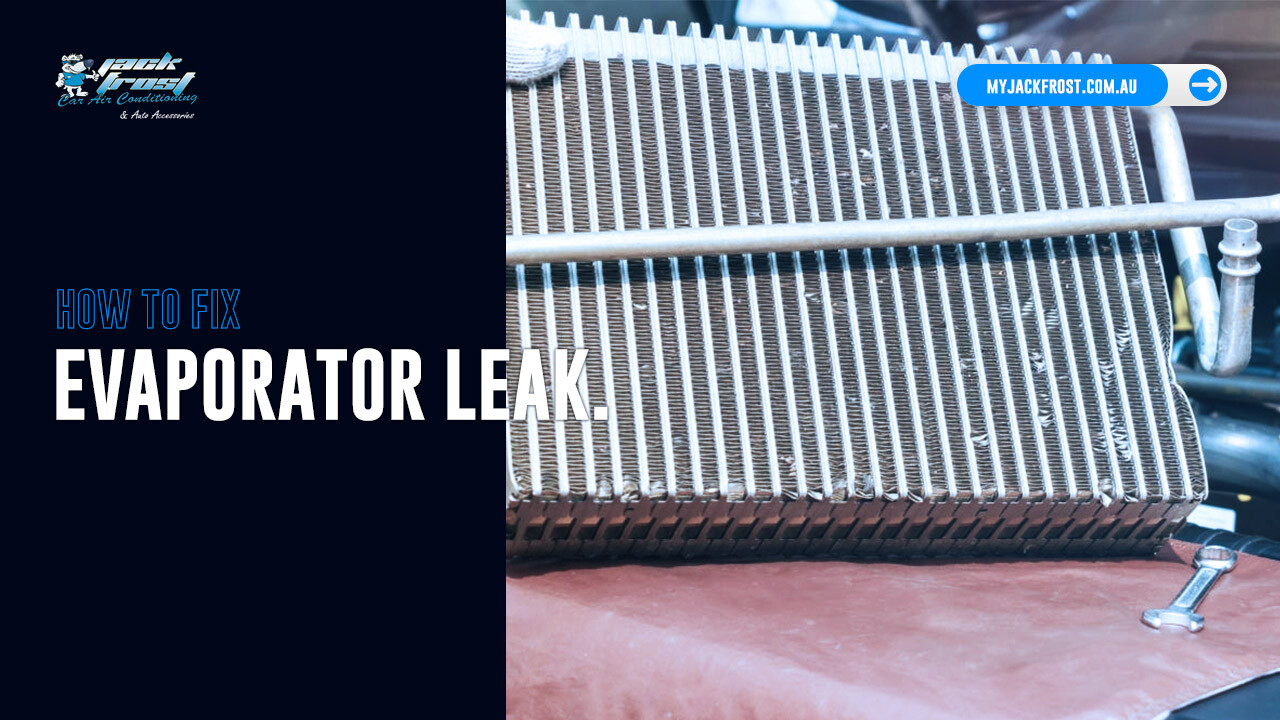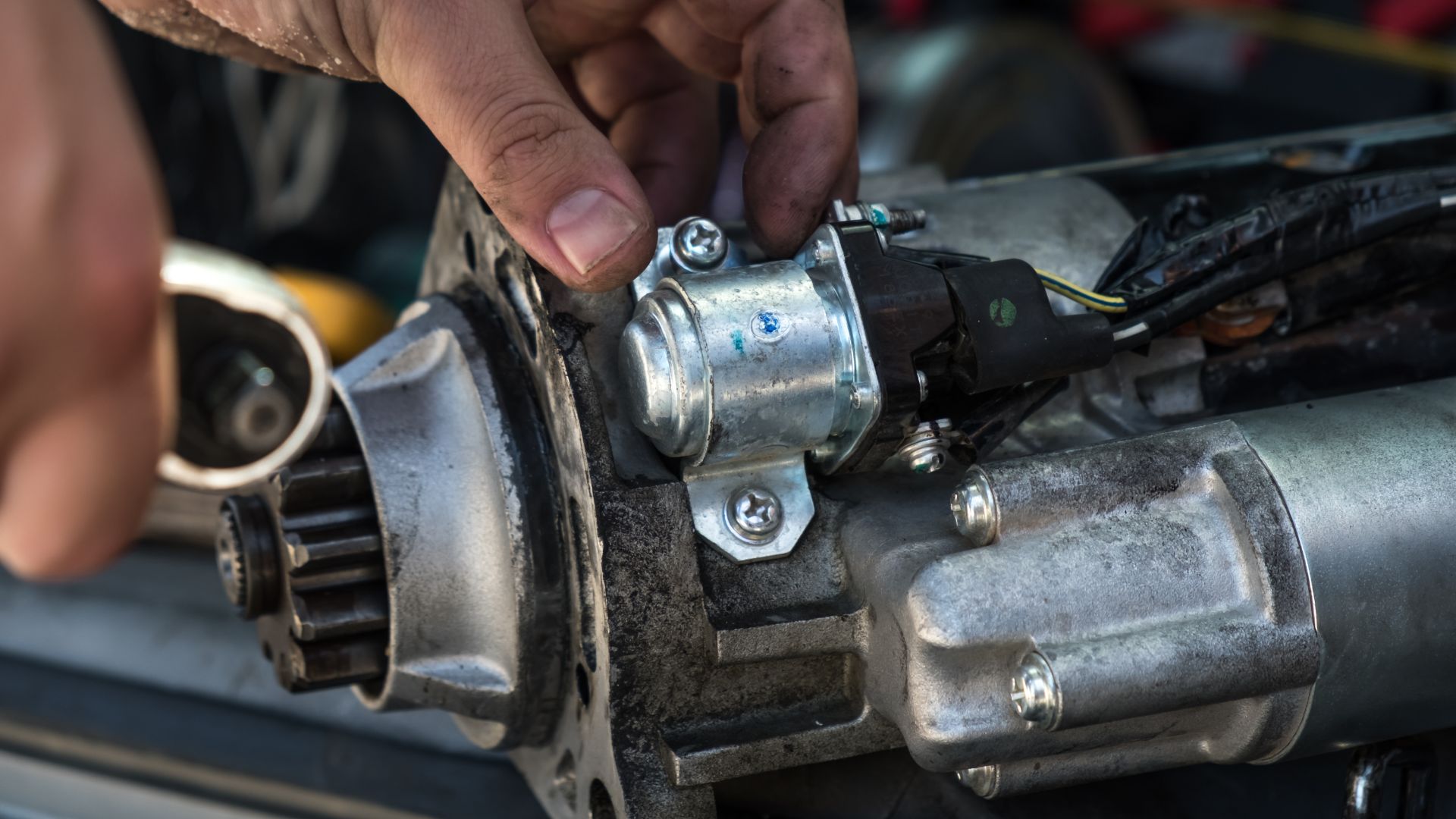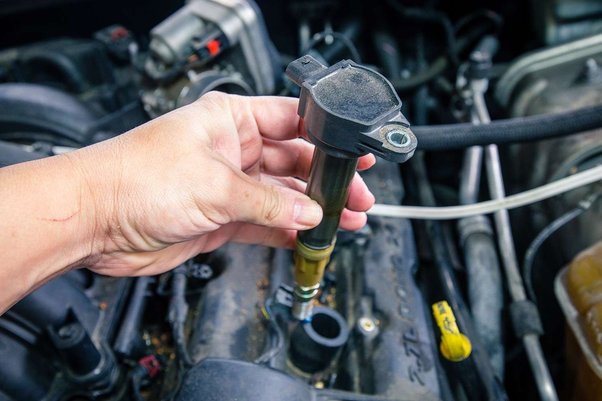Can a Bad Exhaust Cause Loss of Power
Yes, a bad exhaust can cause loss of power in a vehicle. Exhaust issues impact engine performance by restricting the flow of exhaust gases.
Your car’s exhaust system plays a crucial role in its overall performance and efficiency. A malfunctioning exhaust can lead to a noticeable loss of power and decreased acceleration. When exhaust components like the muffler, catalytic converter, or pipes become damaged or clogged, the exhaust flow gets disrupted.
This disruption can cause back pressure to build up in the engine, making it harder for the engine to expel exhaust gases. As a result, the engine struggles to operate efficiently and cannot produce as much power as it normally would. Symptoms of a bad exhaust might include a louder than usual engine sound, decreased fuel efficiency, and a check engine light that comes on. Keeping your vehicle’s exhaust system in good working order is essential for maintaining optimal engine performance and ensuring your car remains reliable on the road.

Credit: www.electronicshub.org
Symptoms Of Exhaust Issues
Exhaust problems may not always make themselves apparent, but they can lead to significant issues like loss of power. Recognizing the warnings early on could save time and money, not to mention prevent potential safety hazards. Let’s dive into some telltale signs your vehicle might exhibit if its exhaust system isn’t functioning correctly.
Reduced Acceleration And Power
Noticing your vehicle struggling to accelerate the way it used to? It might be an exhaust issue. The exhaust system plays a vital role in engine performance. A blocked or damaged exhaust can’t effectively move gases away, leading to a noticeable drop in power and responsiveness. Such a condition could manifest as:
- Difficulty picking up speed
- Sluggishness when pressing the gas pedal
- A longer time to reach desired speeds
These symptoms suggest the engine is not breathing properly, and if left unchecked, could cause further damage.
Strange Engine Noises
Unusual sounds coming from the engine area are a red flag. A healthy exhaust system operates relatively quietly. However, an exhaust leak or a hole in the system can produce a series of audible clues:
| Noise Type | Possible Exhaust Issue |
|---|---|
| Hissing | Exhaust manifold leak |
| Rumbling | Cracked or rusted muffler |
| Popping | Leak along the exhaust pipe |
Such sounds indicate that it’s time to inspect the exhaust system and possibly repair or replace damaged parts. Ignoring these noises might lead to a compromised engine performance or even a breakdown.
Impact Of An Impaired Exhaust System
An impaired exhaust system can have a significant effect on a vehicle’s performance. Notably, a bad exhaust can lead to a loss of power, directly impacting driving experience. It can also contribute to higher fuel consumption and potential damage to the engine. Understanding the role of the exhaust system is crucial in maintaining the health and efficiency of a vehicle.
Backpressure And Engine Performance
An ideal exhaust system creates a balance of backpressure. This pressure helps engines work efficiently. But when an exhaust system fails, this balance is upset. It causes too much backpressure. High backpressure can rob your engine of power. It makes the engine work harder than it needs to. Here are some key points about backpressure and performance:
- Optimal backpressure aids in correct engine function.
- Excessive backpressure causes engines to lose power.
- It can reduce torque and acceleration.
A well-maintained exhaust promotes good engine performance. It enables the engine to exhale spent gases effectively.
Exhaust Leaks And Air-fuel Mix
Exhaust leaks are a common issue in impaired systems. They can disturb the delicate air-fuel ratio needed for engines. Leaks let oxygen into the exhaust stream. This skews sensor readings that regulate fuel injection. Here’s how exhaust leaks impact the engine:
- Leads to incorrect oxygen sensor readings.
- Affects the air-fuel balance, making the engine run lean or rich.
- Reduces the efficiency of the exhaust system’s cleaning ability.
Properly sealed exhaust systems maintain the balance. This lets your car run smoothly. It also ensures optimal fuel use and power delivery.
Diagnosing Loss Of Power
Is your car struggling to pick up speed? A bad exhaust might be to blame. Exhaust systems impact engine performance. When there’s a problem, your car can lose power. Let’s run some diagnostics to find out if your exhaust system is the culprit.
Visual Inspection Of Exhaust Components
Start with a thorough check. Look for rust, holes, and cracks in your exhaust parts. Check out these components:
- Muffler – It should be intact, not rattling.
- Pipes – They must be free from visible damage.
- Catalytic Converter – Ensure it’s not discolored or distorted.
Don’t miss the exhaust manifold and gaskets. Bad gaskets can cause leaks. A simple visual can reveal major issues impacting engine power.
Performance Testing
Next up, test how your car performs. Check for changes in acceleration and fuel efficiency. Has your car’s oomph declined? It’s time for a closer look.
| Test | Purpose | Signs of Trouble |
|---|---|---|
| Acceleration Test | Measures response | Delay or hesitation |
| Fuel Efficiency Tracking | Checks consumption | Increased usage |
Use a vacuum gauge to test exhaust back pressure. High readings hint at a blockage. This can hold your car back, literally. Remember, consistent and accurate testing is key to diagnosing power loss accurately.
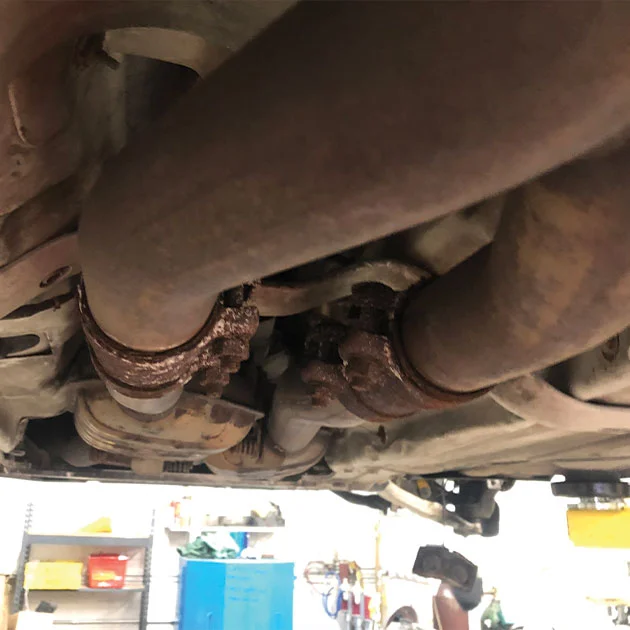
Credit: beckerservicecenter.com
Catalytic Converter Blockages
Catalytic converter blockages are a common cause of vehicle power loss. They perform a crucial role in your car’s emissions system. However, when they fail, they can lead to a significant decrease in engine power and overall performance. Understanding the symptoms of a failing catalytic converter and the connection to power loss can save time and prevent costly repairs.
Signs Of A Failing Catalytic Converter
Recognizing the signs of a failing catalytic converter is key to maintaining vehicle health.
- Reduced acceleration: Your car feels slower to pick up speed.
- Rattling noises: A sound from under the vehicle suggests a loose converter.
- Sulfur smell: A rotten-egg odor indicates converter inefficiency.
- Check engine light: This dashboard warning can signal converter issues.
Link Between Catalytic Converter And Power Loss
A blocked catalytic converter restricts exhaust flow. This leads to noticeable power loss. The engine struggles, as exhaust gases back up. This causes inefficiency and reduces the power output.
| Symptom | Power Loss Relation |
|---|---|
| Exhaust restriction | Blocks engine ‘breathing’, reducing power. |
| Increased backpressure | Forces the engine to work harder. |
| Poor fuel economy | Indicates potential power loss. |
Solving Exhaust-related Power Issues
A car’s exhaust system plays a vital role in its overall performance. Think of it as a giant straw for your car’s engine, allowing it to breathe out exhaust gases. If this straw gets crunched or clogged, your car’s performance might wheeze and sputter. A bad exhaust can lead to a noticeable loss of power and efficiency. So, what’s the best course of action? Keep reading to find out how to tackle exhaust-related troubles head-on.
Repair And Replacement Options
If you suspect an exhaust issue, a thorough inspection is the first step. Sometimes, the problem can be as simple as a loose clamp or a rusted-out muffler. Repairs could range from tightening connections, sealing leaks, to replacing damaged segments.
- Minor Repairs: These can often be done swiftly and at a lower cost.
- Major Replacements: Catalytic converters, oxygen sensors, and the entire exhaust system may need replacement.
Remember, choosing quality parts and a reputable mechanic is crucial for a lasting fix. This ensures you regain full power and efficiency without repeat issues.
Preventative Maintenance Tips
Preventing power loss begins with regular exhaust maintenance. Here are some tips to keep your car’s power at its peak:
- Listen for unusual sounds from the exhaust—it’s often the first hint of trouble.
- Regularly check the exhaust components for rust or damage, especially after driving in harsh conditions.
- Ensure timely oil changes and engine tune-ups to help maintain exhaust integrity.
- Be mindful of short trips; they can cause water vapor to accumulate in the system, leading to rust.
Simple actions can extend the life of your exhaust and prevent power loss. Do not wait until you feel a drop in performance. Being proactive is the name of the game. With these tips and tricks, your vehicle can maintain its roar on the road while ensuring maximum power.

Credit: www.corsaperformance.com
Frequently Asked Questions On Can A Bad Exhaust Cause Loss Of Power
How Does A Bad Exhaust Affect Engine Power?
A bad exhaust can restrict the flow of exhaust gases from the engine, leading to backpressure. This backpressure reduces the engine’s efficiency and power output, as the engine must work harder to push out the gases.
Can Exhaust Leaks Cause Vehicle Power Loss?
Yes, exhaust leaks can lead to loss of power in a vehicle. Leaks can disrupt proper exhaust flow, diminishing the engine’s ability to ‘breathe’ efficiently and perform optimally, causing reduced acceleration and power.
What Symptoms Indicate A Bad Exhaust System?
A bad exhaust system may exhibit symptoms such as a loud exhaust noise, reduced fuel efficiency, vibrations, or a sulfuric, rotten egg smell. Monitoring these can prevent potential power losses and further damage.
Does A Clogged Muffler Decrease Engine Performance?
A clogged muffler can significantly decrease engine performance. It restricts exhaust flow, which increases backpressure and reduces the engine’s ability to run efficiently, thus causing decreased power and acceleration.
Conclusion
Wrapping up, issues with your car’s exhaust can indeed sap engine power. Regular checks are key to avoiding such power losses. Recognizing early signs, like odd noises or a drop in acceleration, can save you time and costly repairs. Remember, a healthy exhaust equals a robust, responsive vehicle.
Stay vigilant and drive safely!

